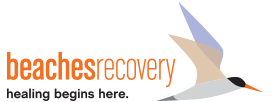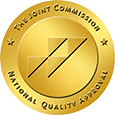Drug rehab helps individuals discover their reasons for falling victim to a substance abuse problem. In some situations, the causes may lie in childhood, unresolved traumas, or peer group interactions. To assist program participants in looking behind thoughts, actions, and behaviors, therapists frequently rely on evidence-based addiction counseling techniques. What are they, and how can they help you, too?
Addiction is a complex disease with physical aspects as well as emotional and mental components. Beaches Recovery understands that to help clients recover and heal from addiction, they need comprehensive care. Our drug and alcohol detox programs address the physical aspects of addiction, such as withdrawal symptoms. At the same time, we provide various therapies to help individuals identify and overcome the mental health issues that have sprung from their substance use disorder or may have contributed to it. Doing so gives clients the most complete addiction treatment and the best chance of healing.
What Does “Evidence-Based” Actually Mean?
Experts in addiction treatment refer to evidence-based practices with a nod to epidemiologists of the 1980s. At the time, health policymakers tried to standardize treatments for conditions across the board. Finding that disparity prevented high-quality care access for all patients. Addiction professionals then connected diagnosis with treatment approaches. Clinical psychologists adapted this concept for their field in the mid-1990s.
For a drug and alcohol counselor, evidence-based counseling techniques provide a menu of possible modalities. They allow for plenty of customization that makes it feasible to tailor a program to a particular participant’s needs. These techniques further allow for rapid changes in a treatment protocol if one approach doesn’t work. As a result, counselors favor this setup within drug rehab settings. No matter a client’s needs, the counselors and therapists at Beaches Recovery can craft a treatment program to help.
Effective Counseling Techniques that Benefit Rehab Clients
Because various counseling approaches show promise within the treatment of addiction, therapists will employ one or more. Examples include:
- Cognitive-behavioral therapy assists participants to evaluate reasons for negative thoughts, feelings, and behavior patterns.
- Dialectical behavior therapy aims at self-acceptance and works well for individuals with black and white thinking.
- Family counseling behavior therapy combines substance abuse treatment with solution analysis for volatile relationships.
- Community reinforcement may include a voucher approach to help program participants stay on track while learning life skills.
- The 12-step approach to treatment can be a tremendous help for individuals readying to undergo the final steps of relapse prevention counseling.
Of course, one approach does not meet every program participant’s needs. For this reason, seasoned therapists look for signals that it’s time to change strategies. Another method for applying these techniques is the judicious switching of modalities within one-on-one and group therapy settings. In so doing, it’s possible to change the focus of a therapy session and provide different opportunities for insight.
Addiction Counseling Techniques Work Well in the Right Therapeutic Settings
Once again, one size doesn’t fit all. For the majority of individuals, an inpatient setting is the ideal treatment locale. You live at the facility, which makes access to a broad range of treatment experiences quick and easy. It also allows for after-hours socializing.
But some participants prefer a partial hospitalization program instead. When going home in the evenings is important to you, you might thrive in this setting. Still, others will do better in an intensive outpatient setting. Make this decision after discussing your options with an intake counselor.
If you’re struggling with an addiction problem today, Beaches Recovery wants to help. So don’t allow addiction to rob you of another day. Reach out for assistance by dialing 866.605.0532 now.








